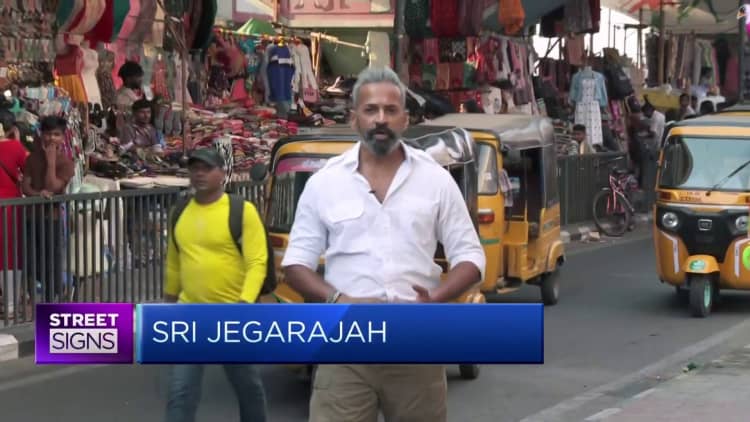GHAZIABAD INDIA – APRIL 06: Prime Minister Narendra Modi greets supporters at a roadshow on April 06, 2024 in Ghaziabad, Uttar Pradesh, India. India’s 2024 general election is set to be the world’s largest democratic exercise, with over 969 million registered voters, more than the combined population of the EU, US, and Russia. (Photo by Elke Scholiers/Getty Images)
Elke Scholiers | Getty Images News | Getty Images
India voted on Monday in the fourth phase of a seven-week long general election, as campaign rhetoric became more strident over economic disparities and religious divisions.
The world’s most populous nation began voting on April 19 in a seven-phase election in which nearly one billion people are eligible to vote, with ballots set to be counted on June 4.
Prime Minister Narendra Modi is seeking a rare, third straight term in a vote which pits his Hindu nationalist Bharatiya Janata Party (BJP) against an alliance of more than two dozen opposition parties, including main rival Congress.
“I appeal to all to vote for a decisive government,” said Amit Shah, Modi’s powerful aide and the country’s interior affairs minister, as voting began.
Polling will be held for 96 seats in 10 states and territories on Monday, with 177 million people eligible to cast their ballots. A large number of seats are in the southern and eastern states of Telangana, Andhra Pradesh and Odisha where the BJP is not as strong as other parts of the country.
Turnout is being closely watched as marginally lower numbers in the first three phases has raised concerns about voter disinterest in an election without a strong, central issue. The impact of hot weather on voting is also being watched with maximums in many parts of the country around 40 degrees Celsius (104°F) or higher.
The lower turnout has raised doubts over whether BJP and its allies can win the landslide predicted by opinion polls.

Analysts say the lower turnout prompted Modi to change the tack of his campaign after the first phase, shifting focus from his economic record to accusing the Congress of planning to extend welfare benefits to minority Muslims at the expense of disadvantaged tribal groups and Hindu castes.
Congress has denied making any such promise and has said Modi is rattled by the turnout, which the BJP denies.
About 80% of India’s 1.4 billion people are Hindus but it also has the world’s third largest Muslim population of about 200 million people. Surveys suggest voters are most concerned about unemployment and price rise.
Led by Rahul Gandhi, Congress is pitching for better representation and welfare programs for India’s poor and disadvantaged groups, stating that wealth inequality has worsened during Modi’s 10-year term, a charge rejected by the government.
The opposition INDIA alliance led by Congress got a shot in the arm ahead of Monday’s vote when the Supreme Court gave temporary bail to Arvind Kejriwal, chief minister of the national capital territory of Delhi and a key opposition leader, allowing him to campaign.
Kejriwal is a fierce critic of Modi and was arrested a month before the elections in a liquor policy graft case, sparking accusations Modi’s government was seeking to cripple the opposition through investigations and arrests.
Kejriwal denies the corruption allegations while the government says it does not influence law enforcement agencies.

